Commitments
Home • Commitments
Transparency, ecology, social equality,
health, all this for a sustainable development.
We create and develop products that are essential to your well-being and demonstrate that another way of consuming, producing home textile, sleeping, washing and sleeping well at home is possible. Since the beginning, we have been committed to a holistic approach to sustainable development.
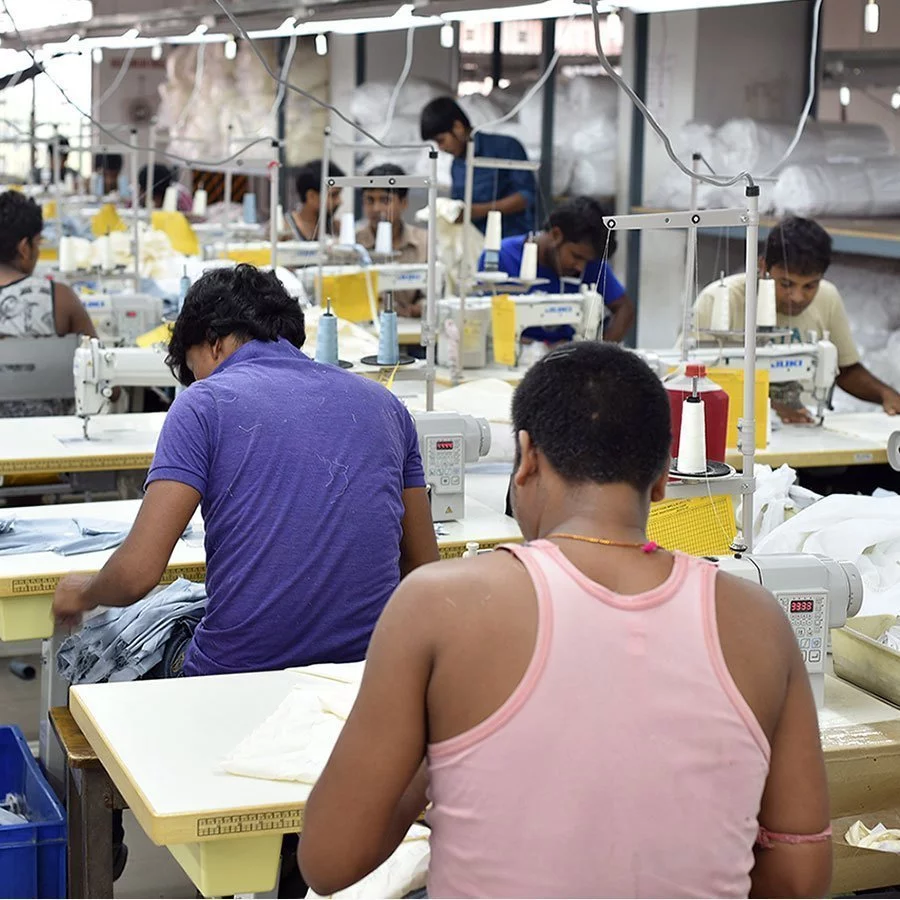
Transparency
Kalani makes it a point of honor to satisfy you and to inform you as best as possible.
We communicate in a transparent way about methods, manufacturing conditions and cost transparency. For this reason, underneath each product in the online shop you will find a transparent explanation of where the money goes on a 100 Euro amount of bed linen, and why Kalani products are on average 50% cheaper than equivalent products found in the traditional trade.
Ecologicial footprint reduction:
We see the environment much more broadly than the use of organic and natural raw materials. For Kalani, minimising environmental impact means acting at all levels:
Which will have a longer lifetime.
Organic cotton is grown without chemicals (pesticides, insecticides or fertilizers) and contributes to the well-being of those who grow it and their communities. The sustainable production practices employed do not pollute water, soil or air, avoid over-consumption of irrigation water and thus preserve the environment and biodiversity.
Kalani’s entire supply chain is certified GOTS, (Global Organic Textile Standard), the strictest organic cotton certification in the world, which in addition to guaranteeing organic cultivation and traceability also limits the use of transformation products (washing, dyeing, printing, …) in all production and manufacturing processes of textile products, as well as the social conditions.
Transport by boat rather than plane, a minimum of road transport. It is important to know that the ecological impact of a production in India is lower than that of a production in the south of Europe with cotton that comes from India or other continents. Indeed, in order to reach the same level of quality in Southern Europe, it is necessary to import cotton or yarn from India with the same carbon footprint as a container of finished products directly to Europe, but above all with additional road transport across Europe (Before choosing this scenario, we considered several solutions that could guarantee the lowest possible ecological footprint).
Made from recycled, recyclable or responsibly produced materials.
By selling almost exclusively online, we greatly reduce the carbon footprint of the distribution networks of traditional shops, but above all the movement of each customer to and from the shops. Local online sales (we are not of course talking about international pure-players) allows us to reduce the CO2 footprint of the store by
The Kalani team and its partners care about the small efforts that, taken together, make the difference.
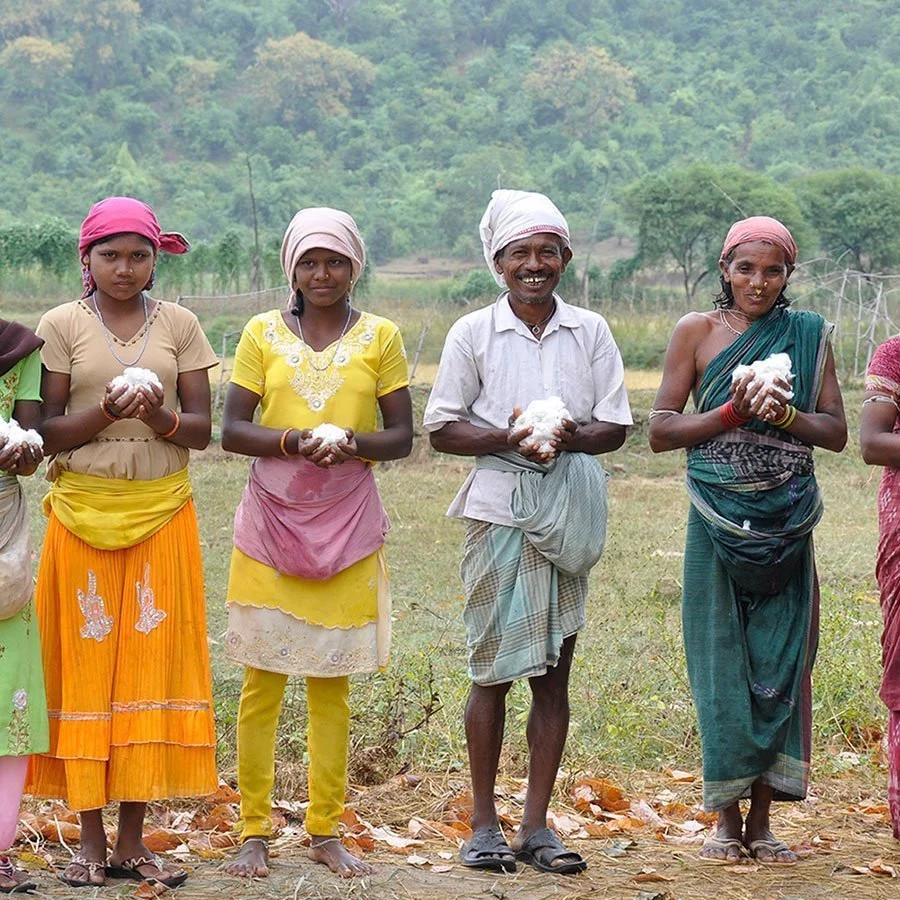
Social criteria respect
Since the start of the brand, we have taken a holistic approach that integrates social criteria into our products, choices and actions. We have chosen our manufacturing plants carefully by going on site to meet them several times. These factories, like us, are Fairtrade and Organic certified and are managed with respect and ethics.
This ensures that employees and workers in these factories enjoy fair working conditions and are paid accordingly, all verified by regular SA 8000 audits. We are internationally committed to paying a higher price for each kilo of cotton purchased. This same cotton is purchased from farmers in the organic cotton "Best Practice" cooperatives in the provinces of Odisha, Telangana and Maharashtra in central India. We travel to India regularly and know precisely the villages where our Organic/Fairtrade cotton comes from.- Freely chosen employment (no forced labour);
- No discrimination;
- No child labor;
- Freedom of association and the right to collective bargaining;
- Payment of wages above the local minimum wage;
- Reasonable hours of work;
- Safe and healthy working conditions;
- A binding employment relationship (an employment contract for everyone).
Our certifications
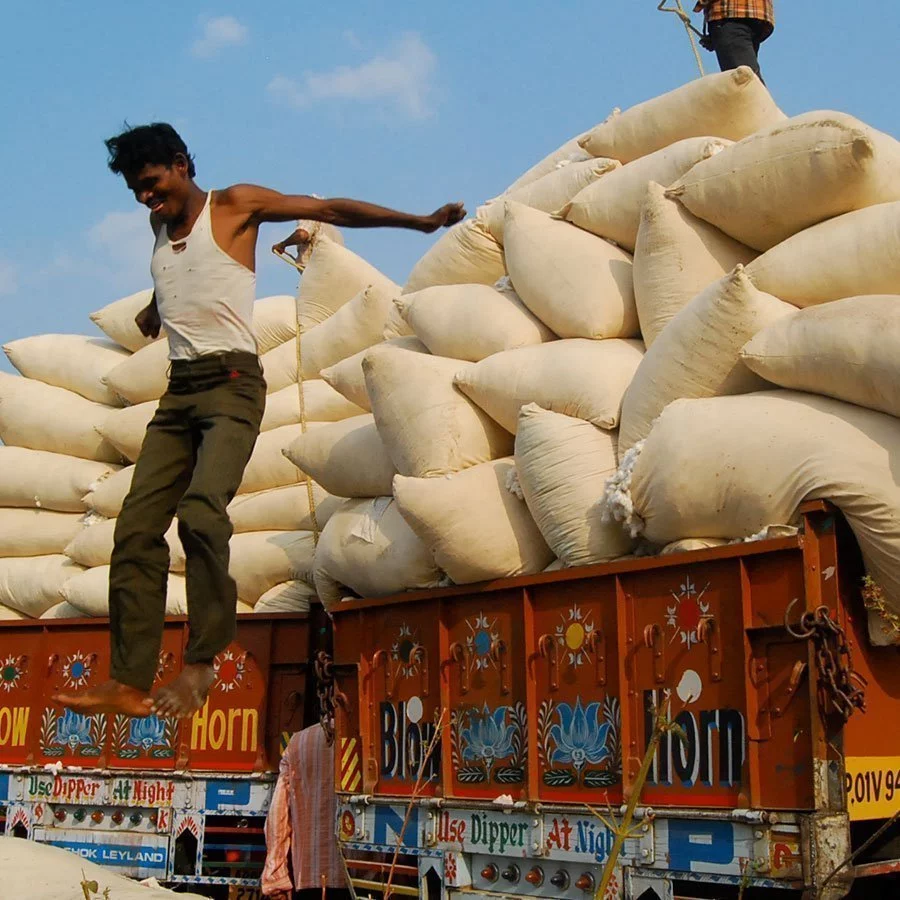
Health proctection
In our opinion, only organic agriculture respects life, biodiversity, the health of farming communities and thus indirectly the health of the entire world population, including your own. Indeed, organic agriculture avoids contamination by GMOs, fertilizers, pesticides, insecticides and chemical defoliants.
A GOTS certified product also has a positive impact on the health of its users. It contains no GMOs, no toxic fine particles (or VOC: for Volatile Organic Components), which are dangerous to health. VOCs are still widely present in the printing and/or dyeing processes of the textile industry. The finished products do not contain any pesticide residues or other toxic chemicals.
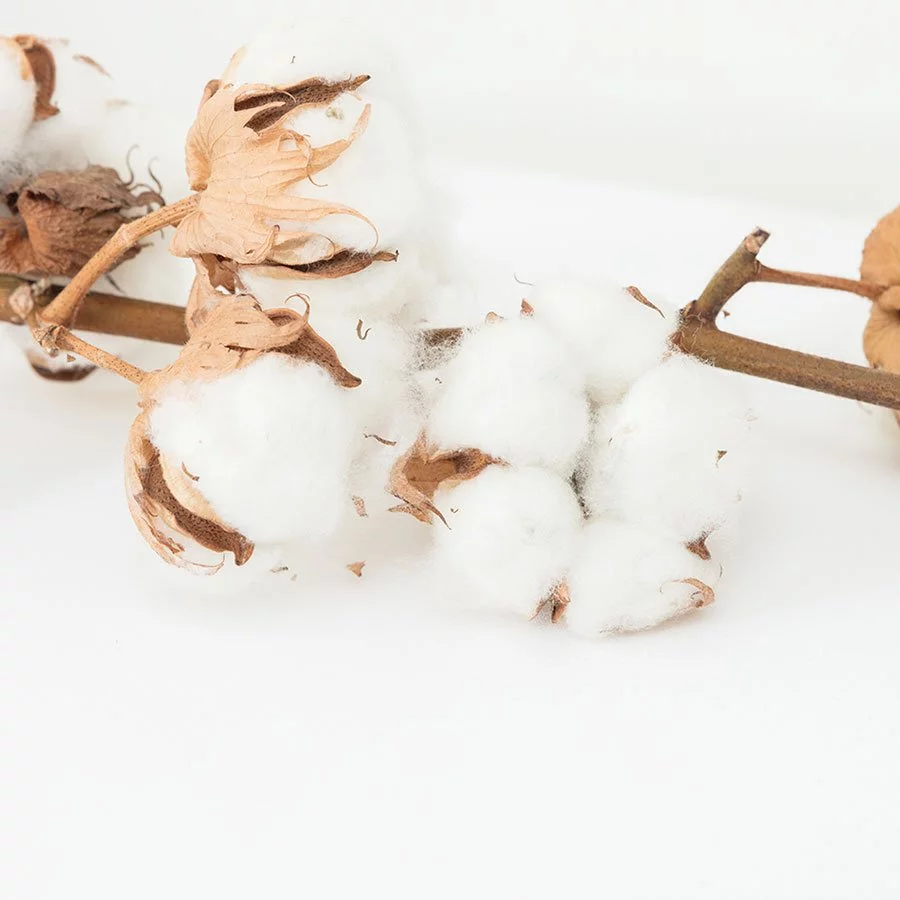
Organic GOTS certification
By choosing to purchase 100% certified organic cotton, and to produce only GOTS certified organic products, we guarantee that our production has no harmful impact on the health of farming communities and their neighbours. The GOTS standard is the only one that guarantees that the fibres, fabrics and products have not been produced and dyed with any product that is harmful to the environment and to the health of users and workers. Dyeing plants treat and clean all the effluent waters before any eventual release to the environment.
In the factories we work with, 100% of the products are dyed and finished in the most sustainable way possible. The products meet the chemical criteria and restrictions of the GOTS label (RSL: Restrictive Substance List) and health, environmental and social standards, as well as the REACH health norm of the European Union.
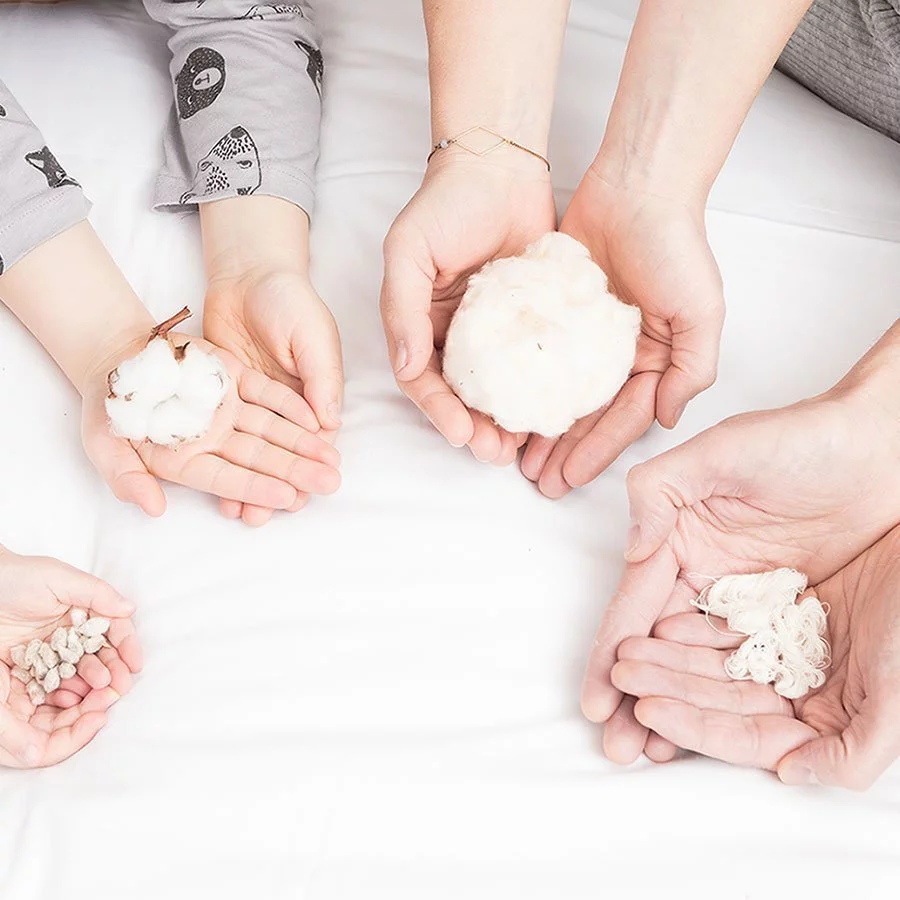
Ensuring maximum positive impact
However, this is not enough. We have the power to change the way you sleep, but what about the homeless and refugees who cannot sleep in descending conditions? For those most in need, we have decided to donate part of our profits to associations that help them in the main Kalani selling countries.

Carbon neutral
Since 2021, we have wanted to go even further in our sustainable approach and have obtained the "Carbon Neutral Company" certification.
A continuous improvement approach that allows us to finance meaningful projects
Glossary
A holistic approach to developing business while respecting people and the environment and generating positive impacts.
Our products are made from organically grown cotton and are GOTS (Global Organic Textile Standard) certified. The products are guaranteed to be made with organic cotton, non-GMO, without the use of chemicals (pesticides, insecticides, fertilizers, defoliants), with a sustainable management of water and field irrigation. They respect the social criteria of the ILO (International Labor Organisation) and do not use any dangerous products for dyeing, finishing and printing.
Products made from Fairtrade cotton, i.e. cotton bought from cooperatives of small producers at a fair price and a premium, to enable them to live in a dignified and sustainable way: www.fairtrade.net/product/cotton
Which respects people, morals, customs, human values in all dignity
Which respects the environment, nature, biodiversity and the planet in general.
Certification Body for our Organic GOTS certified products, our Recycled GRS certified products and other standards: Organic textile certification (GOTS) | Ecocert
Is an auditable certification standard that encourages organizations to develop, maintain, and apply socially acceptable practices in the workplace. It was developed in 1989 by SAI (Social Accountability International), by an advisory board consisting of unions, NGO’s, civil society organizations and companies. The SA8000’s criteria were developed from various industry and corporate codes to create a common standard for social welfare compliance.